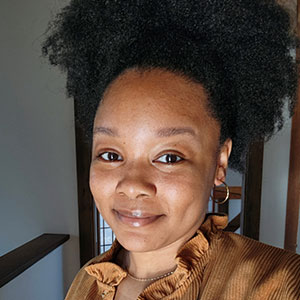Springing from research to med school
Zoe Frias fell in love with science in high school. She was not interested in any one subject, she said, until she started taking biology and chemistry classes.
“It was the first time where I truly felt like I was enjoying what I was learning in school,” she said.

Frias recently graduated from Arizona State University, where she majored in biochemistry and biological sciences and served as co-president of the ASU American Society for Biochemistry and Molecular Biology Student Chapter. She has ambitions to become a physician, using her undergraduate research experience and scientific knowledge as a focal point in a professional journey that includes medical school.
As an undergrad, Frias was eager to get involved in research. Her undergraduate honors thesis was based on her work in an environmental biotechnology lab that focuses on using hollow-fiber membranes for carbon dioxide delivery to algae for biofuel production.
Despite her success with this research, Frias wants to move on. She has taken the Medical College Admission Test and applied to medical school. “I can’t imagine myself going into any other field,” she said. “It combines all the things I enjoy about science while also best serving the needs of others.”
Frias joined the ASU ASBMB Student Chapter because she was looking for ways to get involved on campus. It fit with her interests not only because of her major but also because the chapter provided a way to hear about research opportunities and meet students with similar interests.
However, she said the organization of the Student Chapter had some drawbacks. The chapter is located at the ASU West campus, and Frias is enrolled at the Tempe campus, about 25 miles away. In-person club activities require travel by car, which not every student can afford in money or time. In her leadership role, Frias worked to transition the club to a campuswide organization.
“One positive of the pandemic was making club activities be online, especially with Zoom meetings,” she said.
During the COVID-19 pandemic, the chapter was able to invite guest speakers such as researchers and faculty members, hold meetings and celebrate holidays with student members — all without requiring that anyone travel to a distant campus.
In anticipation of returning to in-person activities, Frias led the effort to spread the word about the ASBMB Student Chapter at ASU. Chapter leaders send announcements through the ASU Honors College newsletter email and invite professors to share information about the chapter with their students.
Before she graduated, Frias wanted to leave the Student Chapter strong with new members and catering to a variety of interests.
“We want to know what our club members are looking for so we can plan our activities accordingly,” she said. “The most important thing in a club is knowing what your members want.”
Enjoy reading ASBMB Today?
Become a member to receive the print edition four times a year and the digital edition monthly.
Learn moreGet the latest from ASBMB Today
Enter your email address, and we’ll send you a weekly email with recent articles, interviews and more.
Latest in People
People highlights or most popular articles

2026 ASBMB election results
Meet the new Council members and Nominating Committee member.

Simcox wins SACNAS mentorship award
She was recognized for her sustained excellence in mentorship and was honored at SACNAS’ 2025 National Conference.

From humble beginnings to unlocking lysosomal secrets
Monther Abu–Remaileh will receive the ASBMB’s 2026 Walter A. Shaw Young Investigator Award in Lipid Research at the ASBMB Annual Meeting, March 7-10 in Washington, D.C.

Chemistry meets biology to thwart parasites
Margaret Phillips will receive the Alice and C. C. Wang Award in Molecular Parasitology at the ASBMB Annual Meeting, March 7-10 in Washington, D.C.

ASBMB announces 2026 JBC/Tabor awardees
The seven awardees are first authors of outstanding papers published in 2025 in the Journal of Biological Chemistry.

Decoding how bacteria flip host’s molecular switches
Kim Orth will receive the Earl and Thressa Stadtman Distinguished Scientists Award at the ASBMB Annual Meeting, March 7–10, just outside of Washington, D.C.

